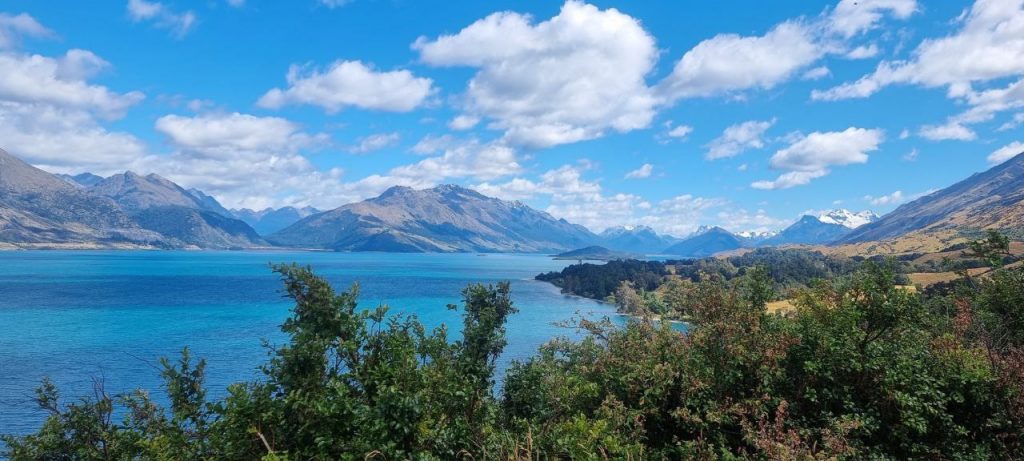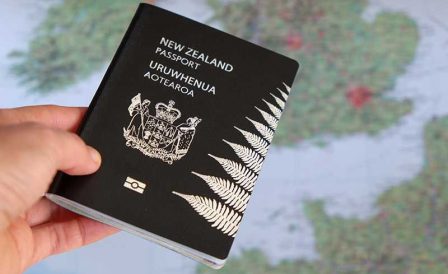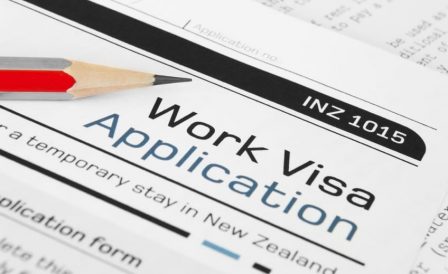The cost of immigration or relocating to New Zealand, especially through education, is a very common question. Everyone’s situation is different depending on their background. So, expenses can vary significantly. However, we’ll break down the most typical and common relocation scenarios and their estimated costs. Also, don’t forget about your living expenses. It goes separately. You can learn more about that in our article Cost of Living in New Zealand.
First and foremost, keep in mind that for the majority of people a full relocation to New Zealand (i.e. residency) is usually possible only if they have a job offer from a local employer. This is the main requirement for skilled/professional immigration. There are also business and investor visas, as well as visas based on relationships. But those are separate paths, not suitable for everybody. You can read more about them in our article How to Immigrate to New Zealand. Meanwhile, in this article, we’ll focus on what is most relevant for the majority of applicants.
All prices below are listed in New Zealand dollars (NZD).

Option 1. Moving through job offer
Searching for a job remotely and obtaining a work visa before arrival to New Zealand means you need to find an employer accredited to hire foreign specialists. One who is willing to take the risk and support you through the visa application process. Unfortunately, this is the option with the lowest chances of success. Very few employers are willing to take such a risk. However, some professionals manage to move to New Zealand this way. Of course it is the cheapest option.
Approximate costs in NZD:
- NZ$600 — diploma recognition through NZQA
- NZ$200 — document translation (if applicable)
- NZ$1,540 — visa application fee
- NZ$2,500 — immigration lawyer (if you choose to hire one and the employer doesn’t cover the cost, which is often the case)
- NZ$1,000 — one-way plane ticket (approx.)
Total: from NZ$3,340 to NZ$5,840
If you are traveling with your family, you should budget approximately the same amount for your partner, and about half that for each child.
Option 2. Moving through Language Courses
Language courses are the first step for students from non-English speaking countries planning for further study in New Zealand’s universities. It is also a great option for qualified specialists whose professions fall into the skills shortage list for New Zealand. Moreover, once already in New Zealand, more employers will be ready to consider you as a potential employee. However, the majority of them prefers you’d rather have a work visa anyway.
Aside from everything else, it is a great way to learn about the local culture, as well as evaluate possibilities for future immigration.
In the table below, you can view a detailed account of expenses for studying and living in the country for periods of 6 and 12 months. These are average prices. Because you may find both more affordable and more expensive options for study. All prices listed below are in New Zealand dollars.
Language courses
| Student | Student + Partner (both studying) | Student + Partner (both studying) + Child* | ||||
|---|---|---|---|---|---|---|
| 6 months | 12 months | 6 months | 12 months | 6 months | 12 months | |
| Education fee* | $7,500 | $15,000 | $15,000 | $30,000 | $15,000 | $30,000 |
| Funds for living in the country** | $10,000 | $20,000 | $20,000 | $40,000 | $20,000+$1,000 (child) | $40,000+$2,000 (child) |
| Funds for tickets (round-trip)*** | $2,000 | $2,000 | $4,000 | $4,000 | $6,000 | $6,000 |
| Fee for Student visa | $900 | $900 | $1,800 | $1,800 | $1,800 | $1,800 |
| Consultants and lawyer service | $1000 – 3500 | $1000 – 3500 | $1,500 – 6,500 | $1,500 – 6,500 | $1500 – 6,500 | $1,500 – 6,500 |
| Total | $21,400 – 23,900 | $37,900 – 41,400 | $42,300 – 47,300 | $77,300 – 82,300 | $45,300 – 50,300 | $81,300 – 86,300 |
* NZ $300 per week + school’s fees
** NZ $1,670 per month or NZ$ 20,000 per year (by regulation of immigration authorities)
*** Depending on the airline and season. You can check prices on your airline’s website
***When going with children total cost must be calculated separately depending on a child’s age, whether or not he/she needs to study (courses, kindergarten, school etc).
Currently, the cost of language education programmes varies from NZ $200 to NZ $450 per week. You can view more detailed information about programmes and pricing here.
You can work part-time to pay for a portion of your expenses when possible. The minimum wage for student part-time workers at 20 hours per week is around NZ $370/week or about NZ$ 20,000 / year. However, you will have to present the required funds on your bank account in advance of receiving your visa.
Option 3. Moving through Professional education
This is the most reliable way to immigrate to New Zealand. It is a great option for specialists in any field. After receiving a diploma, you’ll be able to apply for a Post Study Work Visa from 1 to 3 years depending on your study programme (Level). Read the information here.
If you already have a higher or vocational education, the duration of study in New Zealand will typically be 1 to 1.5 years. Level 7–8 programs last for 1 year and allow you to apply for a 1-year Post Study Work Visa. Level 9 programs (Postgraduate Diplomas or Master’s degrees) last for 1 to 1.5 years and allow you to apply for a 3-year Post Study Work Visa. These programs also offer more opportunities for your partner to obtain a work visa, which in turn allows your children to study at public schools for free.
If you select the right programme of study, there are opportunities to receive a ‘Partner of a Student Work Visa’. Read more about the educational system of New Zealand here.
Below are average cost estimates, not including potential tuition discounts or scholarships.
Professional education (confirmation or advancement of qualifications)
| Student | Student + Partner (work visa) | Student + Partner (work visa) | |
|---|---|---|---|
| Level 7-8, 1 year of study | Level 9, 1 year of study | Level 9, 1,5 years of study | |
| Education fee* | $25,000 | $30,000 | $45,000 |
| Funds for living in the country** | $20,000 | $20,000+$5,000 (partner) | $30,000+$7,500 (partner) |
| Funds for tickets (round-trip)*** | $2,000 | $4000 | $4,000 |
| Fee for visa | $900 | $1,800 | $1,800 |
| Consultants and lawyer service | $1,000 – 3,500 | $1,500 – 6,500 | $1,500 – 6,500 |
| Total | $48,900 – 51,400 | $62,300 – 67,300 | $89,400 – 94,400 |
* The cost of study depends on your chosen place and programme of study
** NZ $1,670 / month or NZ$ 20,000 / year (immigration authorities requirements for student visa)
*** Depending on the airline and season.
The cost of diploma programs depends on a university’s category and the program itself. Currently, on average it is in between NZ$ 20,000 and NZ$ 40,000. Also, in our article Universities in New Zealand you can read more details about differences and costs.
You can cover some of the expenses through part-time work. A student working 20 hours per week earns a minimum of around NZ$370 per week, or approximately NZ$20,000 per year after taxes.
Moreover, a student’s partner working full-time at minimum wage can earn NZ$770 per week, or from NZ$40,000 per year after taxes. However, you’ll still need to show sufficient funds in your bank account when applying for the visa.
If at least one partner holds a work visa, children are eligible for free public schooling.
So, there are many different options available depending on your budget and goals. However, every case is highly individual and depends on the student’s background. We’re happy to help you figure everything out. Start by reading articles on our website, or book a consultation with us.
Read more information in our blog:



